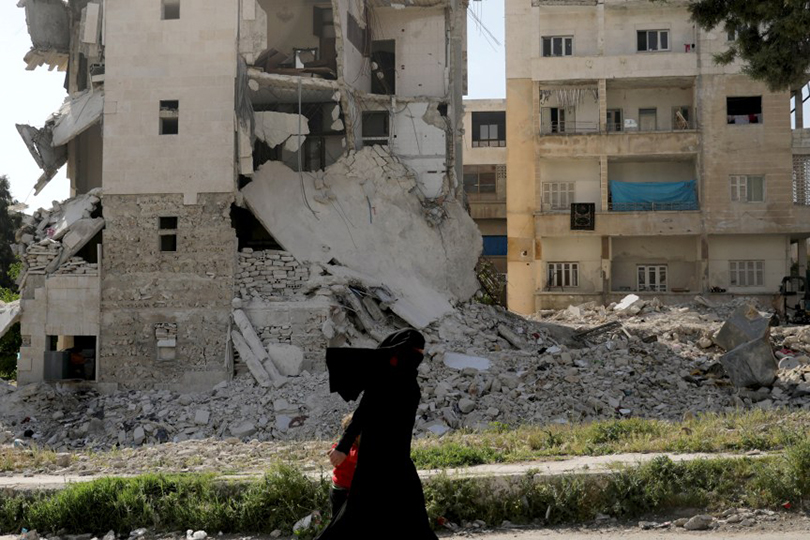Will COVID-19 prolong conflict in Libya and Syria, or will such wars exacerbate the pandemic’s spread? The answer is not so simple. Recent developments in both countries demonstrate that the relationship between a pandemic and conflict is dynamic, not one-directional.
Maha Yahya notes that Syria’s fragmentation prevents an effective response to COVID-19, while at the same time, “the pandemic is further compounding Syria’s fragmentation.” While containment measures have been partially implemented across parts of the country, fighting persists. Muriel Asseburg et al. state, “none of the crucial external actors has changed course so as to allow for an effective tackling of the humanitarian needs resulting from the pandemic.”
Similarly, fighting in Libya has intensified, despite the United Nations Secretary General’s call for a universal ceasefire in March. War has left healthcare systems ill-equipped to handle a public health crisis of this scale, and recent attacks on Libya’s hospitals will exacerbate the situation. Emadeddin Badi draws attention to an additional complicating factor: the pandemic’s geopolitical implications in Libya. He warns that a broader process of Libya’s nation-building will suffer another blow as international stakeholders prioritize their engagement with local hybrid actors. Such actors will be seen as “tools through which the contagion of instability would be managed.” At the same time, as Frederic Wehrey cautions, Libyan armed groups could “instrumentalize and weaponize the public health crisis to further their political and social influence.”
In Syria, on the other hand, Asseburg et al. contend that the pandemic will neither serve as a turning point nor determine the course of the war.
At a time when collective action is needed to eradicate the pandemic, warring parties in Syria and Libya still place their bets on a military solution to their conflicts. Indeed, COVID-19 is unlikely to become a major determinant of conflict dynamics in those countries. Instead, it will exacerbate the already dire outcomes of war by diminishing state capacity, fragmenting sovereignty, and intensifying violent struggle over resources. As state and sub-state groups lack the necessary economic buffers to address the repercussions of COVID-19, this struggle for control over resources will deepen.
“Syria’s fragmentation is hampering the pandemic response, and the pandemic is compounding that fragmentation. The result is still more suffering for the Syrian people.” – Maha Yahya, Director of the Carnegie Middle East Center. Syria and Coronavirus, April 14, 2020.
“While many armed groups will seek to monopolize medical aid to themselves or for their affiliated communities, others will attempt to profit from the situation through their networks that enmesh political and business elites.” – Emadeddin Badi, Nonresident Senior Fellow at the Atlantic Council. Coronavirus in Libya: The Contagion of Instability, May 7, 2020.
“The pandemic will be especially punishing on displaced persons and migrants in Libya. In the long term, it will likely damage the country’s prospects for peace and cohesion.” – Frederic Wehrey, Senior Fellow at the Carnegie Endowment for International Peace. Libya and Coronavirus, April 14, 2020.
“For Syria, the pandemic is unlikely to become a decisive turning point in conflict dynamics or an overall determinant of its future trajectory. Rather… the relevant actors are likely to continue to follow their strategic interests in Syria… against the backdrop of the pandemic.” – Muriel Asseburg et al., Senior Fellow at the German Institute for International and Security Affairs. The Covid-19 Pandemic and Conflict Dynamics in Syria, May 2020.







Comments